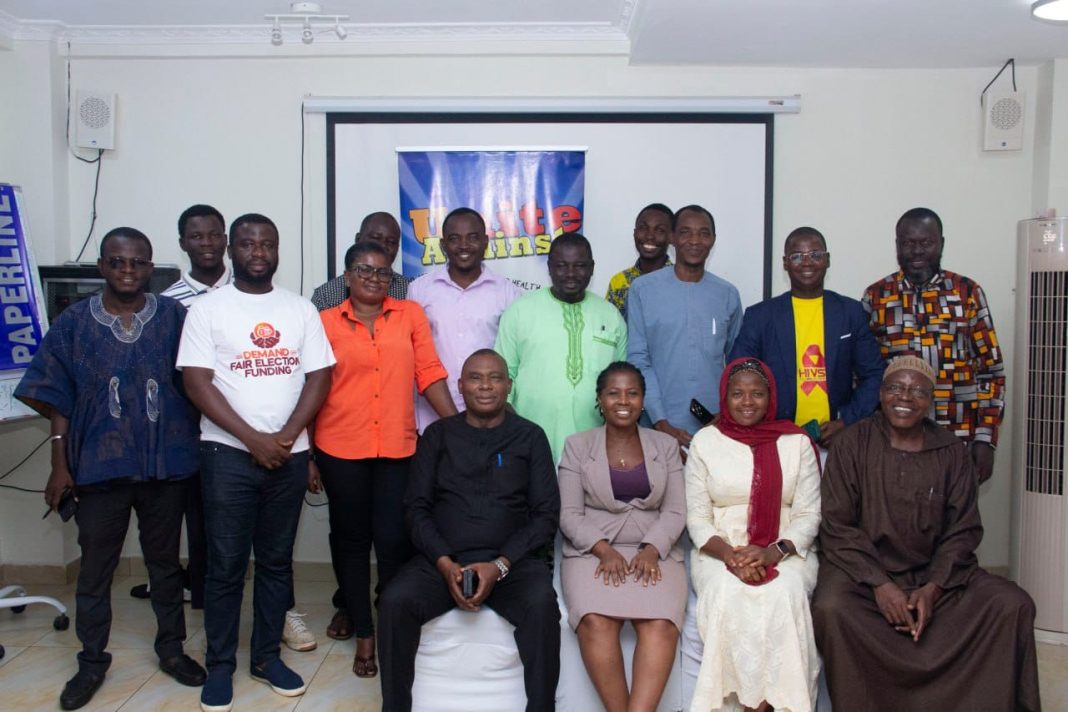By Solomon Gumah
Tamale, June 27, GNA – Mr Solomon Nyanka, Monitoring and Evaluation Officer at the Ghana Anti-Corruption Coalition (GACC), has stated that Ghana’s efforts to effectively recover and manage stolen assets are being severely undermined becsuse of weak institutional structures and insufficient collaboration among civil society organizations and the media.
He explained that the failure of developing countries, including Ghana, to properly recover and manage corrupt assets had led to annual losses of billions through embezzlement, bribery, and misuse of public resources, thereby undermining national development.
Mr Nyanka said this during a sensitization workshop on asset recovery and management for selected civil society organizations, media personnel, and community-based groups in Tamale.
The workshop, organized by the GACC, formed part of the implementation of a project titled: “Building Political Will and Public Support for Asset Recovery in Ghana”, with funding support from the Inter-Governmental Action Group Against Money Laundering in West Africa.
It was to deepen public understanding and strengthen the role of the media and civil society in advancing Ghana’s asset recovery efforts.

Participants were sensitized on Ghana’s legal and institutional frameworks for recovering the proceeds of crime, and the critical roles of the media and the public in ensuring accountability.
Madam Yvette Anthea Owusu from the Compliance Department of the Financial Intelligence Centre, Ghana, provided an overview of the country’s asset recovery regime.
She noted that Ghana aligned her approach with international obligations under the United Nations Convention Against Corruption, ratified in 2017.
She added that the country also adhered to recommendations by the Financial Action Task Force and the ECOWAS Protocol on the Fight Against Corruption, which guided Ghana’s asset recovery efforts and legislative frameworks.
Madam Owusu cited key legal instruments supporting asset recovery in Ghana including the Economic and Organized Crime Office Act, 2010 (Act 804), the Anti-Money Laundering Act, 2020 (Act 1044), and the Office of the Special Prosecutor Act, 2017 (Act 957).
She encouraged civil society organizations and the media to effectively play their watchdog roles by holding institutions accountable, prioritizing investigative journalism to trace illicit assets, and participating in policy and legislative reforms.
Mr Benjamin Ndego from the Legal and Prosecutions Department of EOCO highlighted key challenges facing asset recovery efforts.
He said recovery often required litigation, which could be delayed due to congested court dockets, frequent adjournments, and procedural technicalities.
He said EOCO successfully recovered GHc308 million in 2023 and GHc200 million in 2024.
He added that EOCO had also confiscated several landed properties nationwide and strengthened international collaborations, including the Asset Recovery Inter-Agency Network Africa.
Participants at the workshop recommended that EOCO intensified the use of legal tools such as plea bargaining to enhance recovery outcomes and called for continuous capacity building and policy reforms to improve the system.
GNA
Edited by Eric K. Amoh/Christian Akorlie
